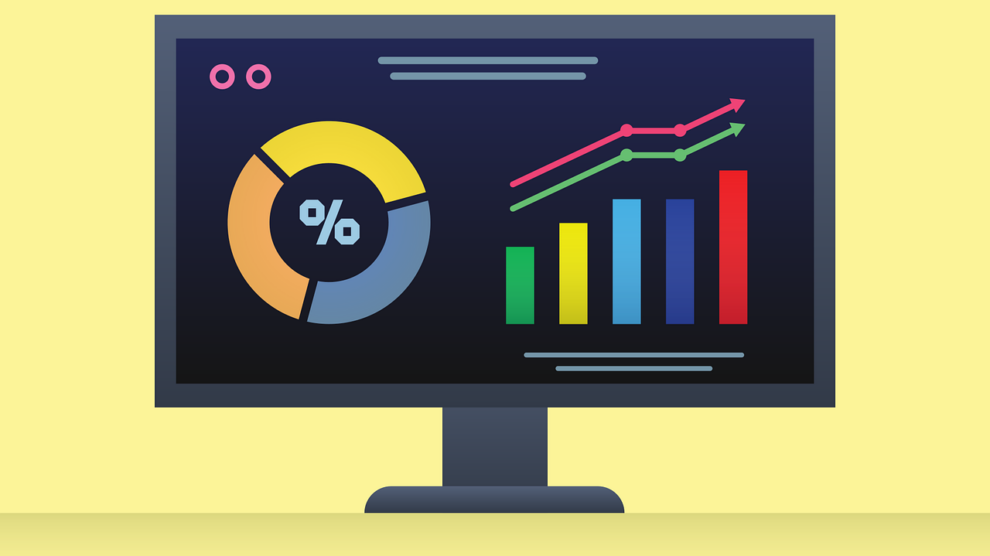Who doesn’t love navigation apps? Google Maps, Waze, and others like them are godsends, making it so much easier to avoid traffic and other mishaps that threaten to keep us from our desired destination.
The apps work by drawing on data from traffic reports, weather reports, and other sources — both current and historical — to forecast what traffic will be like along your route. Their forecasts allow drivers to choose the path that will help them reach their goals on time and without unnecessary hassle.
In the business world, financial forecasting is like a navigation app for your business journey. By analyzing data from a wide variety of sources, financial forecasting allows companies to see the road ahead, understand how it could affect them, and make data-driven decisions. It gives a company what it needs to accelerate its success.
Financial forecasting is especially valuable for startups, giving founders the insights they need to do more with less, but the work required to produce a reliable and relevant forecast has historically made them inaccessible to startups. The resources they require simply make them too costly.
Now, however, startups can leverage AI to tap into the power of financial forecasting. AI enhances the forecasting process in many ways, making it more accessible and impactful for startups.
AI makes forecasting more accurate
When you are dealing with numbers, mistakes quickly lead to misdirection. And mistakes are easy to make when you are manually processing data. A moment of distraction can cause someone doing data entry to miskey a number and send a forecast in the wrong direction. And a misguided forecast is worse than no forecast at all.
AI improves the accuracy of forecasts by automating data processing. It gathers data from a wide variety of sources, reformats it accordingly, and combines it, taking the human element out of the process. When data changes — the acquisition of a new client increases income, for example — AI automatically updates forecasts.
AI also improves accuracy by allowing forecasts to include more data. Think of a financial forecast as a digital picture, and the data used to produce the forecast are the pixels that form the picture. The more pixels are used, the clearer the picture. Increasing the amount of data available for the forecast allows companies to get a better picture of what they can expect.
Adding more data sources to the forecasting process is especially important to startups. Without a lot of historical data to draw upon, startups must look to other indicators — such as market movements, government actions, and competitor performance — to develop a forecast. Assessing external data gives it valuable insights into how the business landscape is evolving and what it will need to thrive.
With manual processing, adding more data requires more time and energy, which is not easy for a startup to provide. By automating the process with AI, startup founders can get accurate, up-to-date forecasts while they focus on other key tasks. Studies show that the forecasts AI provides in certain industries are 30 percent more accurate than those provided by manual processing.
AI makes real-time forecasting possible
If you are relying on a navigation app to map out your journey, you want a forecast built upon today’s conditions, not last week’s. The same is true for financial forecasting. Financial data can shift rapidly from day to day. The best forecast will be fresh.
Few startups can keep forecasts up to date with manual processes. It simply requires too much work. With AI, however, any startup can access real-time forecasts.
The increase in processing speed AI brings to forecasting is staggering. Studies have shown AI is more than 1,000 times faster than humans at processing data. Unleashing that speed in the forecasting process means startups always have the insights they need to make informed decisions.
When a collision or other event chokes traffic, a navigation app alerts the driver to a course correction. Real-time financial forecasting does the same thing for startups. By knowing immediately when plans need to change, startups can avoid wasting resources and traveling down paths that don’t lead to business success.
AI forecasting accelerates startups’ performance
Startup success typically depends on getting out of the blocks fast. Resources are limited, so attracting investors quickly is critical. The longer it takes to get on track, the higher the risk a startup will run out of fuel.
Forecasting is a critical tool for finding the quickest path to success. It allows startups to know with certainty what they have to work with and reveals the hurdles they’ll need to overcome in the marketplace.
AI-assisted forecasting opens the door for startups to tap into a game-changing source of intel. And it does it with a higher level of accuracy, efficiency, affordability, and availability than startups have ever had access to before.





